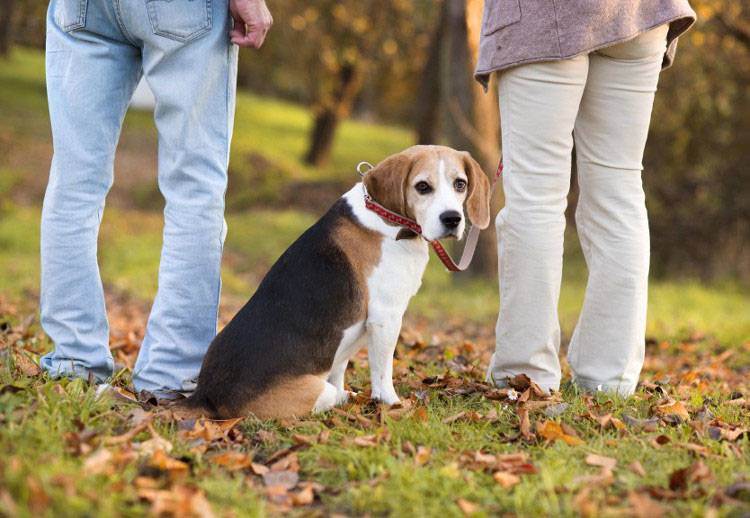Who Gets the Dog in a Divorce?
By Danielle Farrington
When a dog is welcomed into the home, he quickly becomes a member of the family. Sadly, families often experience difficulties and relationships end. Many people do not consider what this may do to the family dog.
Anxiety, aggression and other problems can arise during a stressful living situation in even the best behaved dogs. Stephen May and David Pisarra, co-authors of “What About Wally? Co-parenting a Pet with Your Ex,” aptly state: “In many situations when couples argue, yell and are loud, dogs manifest their anxiety and stress by changing their normal behavior.”
Creating a plan to accommodate not only your new living situations, but also benefit your dog is the best way to approach a divorce, breakup or other life-altering event.
Who Gets the Dog?
This is the most important question when it comes to separation. It is incredibly difficult to leave a pet so creating a situation, in which both of you can care for your dog is the best option. Sometimes, circumstances change. For instance, one of you might move into an apartment that does not allow pets. However, this does not mean an agreement cannot be met. You could make arrangements for day trips or weekend visits. If one of you moves too far to visit regularly, arrangements could be made to transport your dog from one place to another. This, of course, means the safety and well-being of the dog is paramount when searching for a method of transport.
RELATED: Traveling With Your Dog
Making a Plan
Aside from deciding who and when gets the dog, there are many other details to discuss. One of the absolute most important things to remember is that the dog’s emotional well-being needs to be considered.
- Daily Routine: Dogs do best on a regular schedule so it is important that during the process of separation and in the resulting situations to keep your dog’s daily schedule, including feeding potty times, as regular as possible.
- Food, Toys and Equipment: It should be agreed upon by everyone involved what type of dog food you will be feeding. Each of you should also have sufficient toys as well as a leash, harness, collar, etc., for your dog.
- The Vet: If your dog ends up in a new place, he will need a new veterinarian. You’ll also need to discuss who will pay for the vet visits and medications. If your dog ends up seeing two different vets, you need to ensure the records are shared to ensure consistent care.
- Other Details: You also need to discuss vacation schedules, dog walkers or doggie daycare, dog transport, and travel. It is important that everyone involved agrees on the pertinent detail in your dog’s life, including what treats he can or cannot be given (this is important for dogs with allergies or on specific diets).
Implementing the Plan
Consistency is the word that best describes what is needed for your dog. This applies to any living situation. During a divorce or separation, this means that both of you need to have a regular schedule for the dog and need to consistently monitor his behavior over time. Playing a game or teaching a new behavior is a good way to distract and de-stress both you and your dog.
Even more than that, loving your dog and continuing to treat him as a valued family member no matter what happens is the best plan for both of you. This is the key to successful co-parenting.
May, Steven and Pisarra, David T. What About Wally? Co-Parenting a Pet with Your Ex. Santa Monica: PetLoverzGuides, LLC. 2011. Print.






